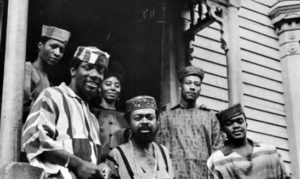The power of words knows no bounds, and throughout history, Black literature has proven to be an extraordinary force that has not only enriched literary traditions but also played a pivotal role in shaping cultural movements. In this blog, we’ll embark on a journey through the pages of history to explore how Black literature has influenced and ignited transformative cultural movements. From the Harlem Renaissance to the Civil Rights Movement and beyond, the impact of Black literary voices is profound and enduring.
The Harlem Renaissance: A Cultural Awakening
The Harlem Renaissance, a cultural movement spanning the 1920s, marked a significant turning point in American history. It was a period when Black writers, poets, and artists converged in Harlem, New York, and their creative expressions ignited a powerful cultural renaissance.
- Langston Hughes: The Poet Laureate of Harlem
Langston Hughes, often referred to as the “Poet Laureate of Harlem,” infused his poetry with the rhythms and blues of African American life. His verses painted vivid pictures of the struggles and aspirations of Black Americans during the Harlem Renaissance. Hughes’ works, including “The Weary Blues” and “The Negro Speaks of Rivers,” resonated with a sense of pride and identity, instilling a renewed cultural consciousness among his readers.

- Zora Neale Hurston: The Voice of Folklore
Zora Neale Hurston, through novels like “Their Eyes Were Watching God,” delved into the world of African American folklore. Her storytelling illuminated the rich cultural traditions and identities of Black communities in the South, providing a voice for those who had been silenced for too long.
The Civil Rights Movement: Words as Weapons
The Civil Rights Movement of the 1950s and 1960s was a defining period in American history, and Black literature played a pivotal role in mobilizing and inspiring activists.
- James Baldwin: The Truth-Teller
James Baldwin’s essays, novels, and speeches confronted the racial injustices of his time head-on. His work, such as “The Fire Next Time,” stirred the conscience of a nation, challenging the status quo and advocating for racial equality. Baldwin’s words were not just literature; they were a call to action.
- Maya Angelou: The Voice of Resilience
Maya Angelou’s memoir, “I Know Why the Caged Bird Sings,” recounted her experiences growing up as a Black woman in America. Her candid storytelling and poetic prose resonated with many, offering solace and strength to those who had faced adversity.
The Black Arts Movement: Empowerment Through Artistry
The Black Arts Movement of the 1960s and 1970s was a cultural and artistic renaissance that emphasized the importance of Black art as a vehicle for political and social change.
- Amiri Baraka: The Revolutionary Poet
Amiri Baraka, formerly known as LeRoi Jones, used his poetry and plays to confront systemic racism and advocate for Black empowerment. His work, such as “Blues People” and “Dutchman,” challenged societal norms and encouraged a new generation of Black artists to find their voices.
- Toni Morrison: The Nobel Laureate
Toni Morrison’s novels, including “Beloved” and “Song of Solomon,” explored the complexities of Black identity and history. Her powerful storytelling earned her a Nobel Prize in Literature and solidified her as a literary giant who amplified the voices of Black people.
Contemporary Impact: A Legacy Continues
The influence of Black literature on cultural movements continues to this day. Contemporary Black authors are addressing issues of identity, race, and social justice in their works, sparking important conversations and inspiring change.
- Ta-Nehisi Coates: The Modern Chronicler
Ta-Nehisi Coates’s essays and books, like “Between the World and Me” and “The Water Dancer,” explore the Black experience in America. His unapologetic prose has made him a leading voice in contemporary discussions on race and identity.
- Chimamanda Ngozi Adichie: The Global Storyteller
Chimamanda Ngozi Adichie, while not African American, has contributed significantly to the discourse on race and identity through her novels, including “Americanah” and “Half of a Yellow Sun.” Her work transcends borders, connecting with readers worldwide.
Conclusion
Black literature is a testament to the enduring power of words. From the Harlem Renaissance to the Civil Rights Movement, and into the present day, Black authors have used their literary talents to influence and shape cultural movements, challenging societal norms, inspiring change, and amplifying the voices of marginalized communities. Their words serve as a reminder that literature is not just a reflection of society but a catalyst for transformation, a beacon of hope, and a force for justice. In the pages of Black literature, we find both the echoes of the past and the guiding lights of the future. Read More>>>